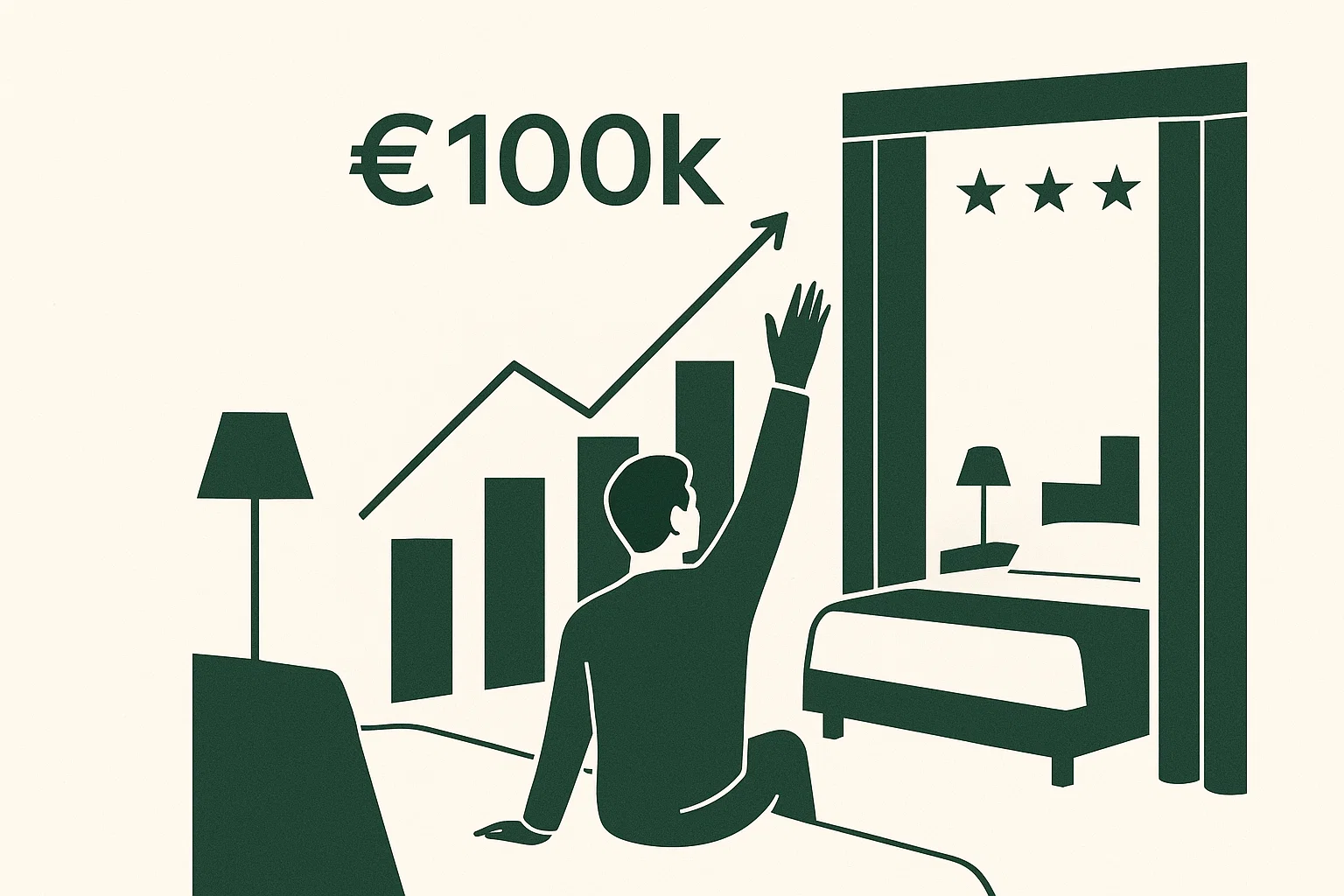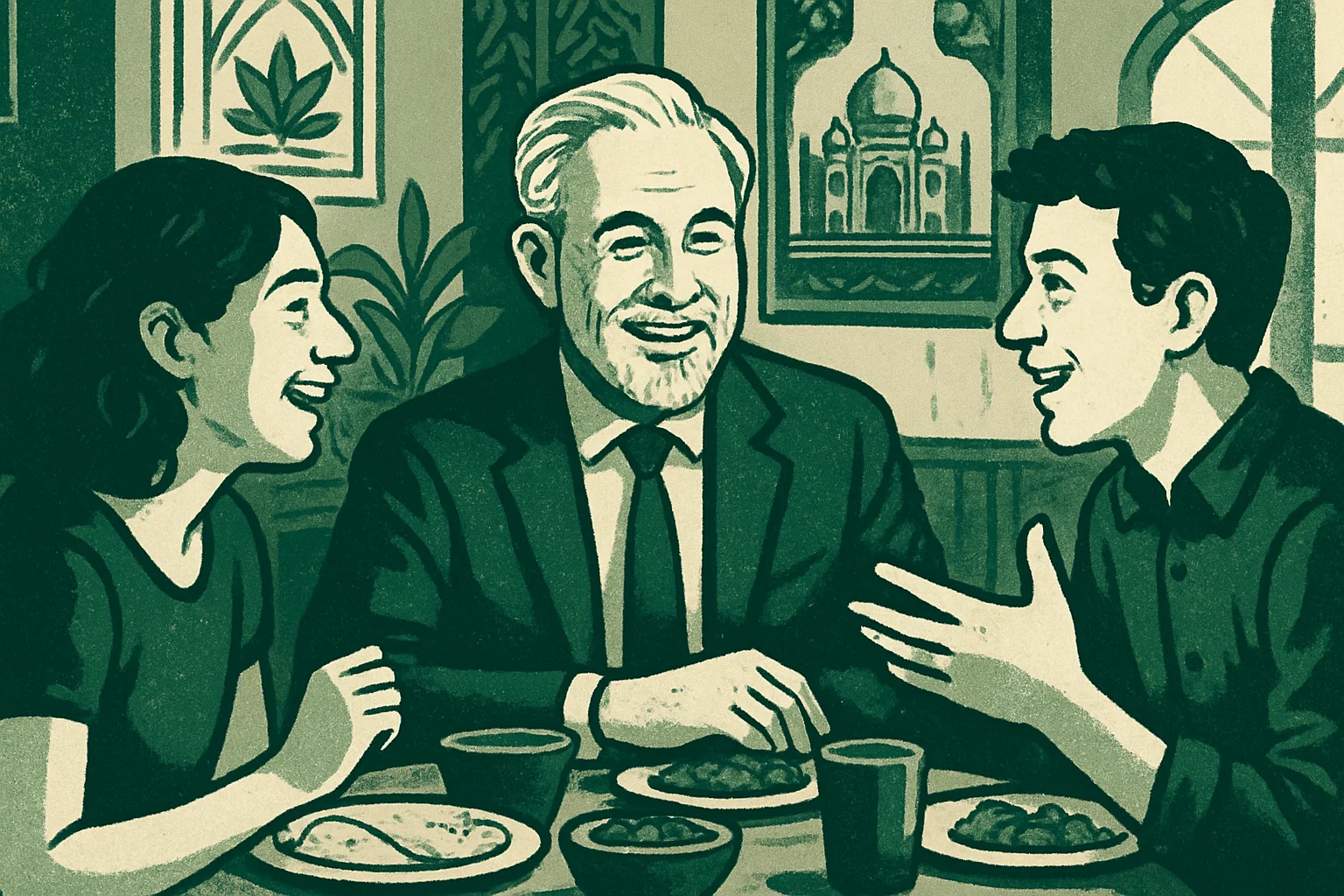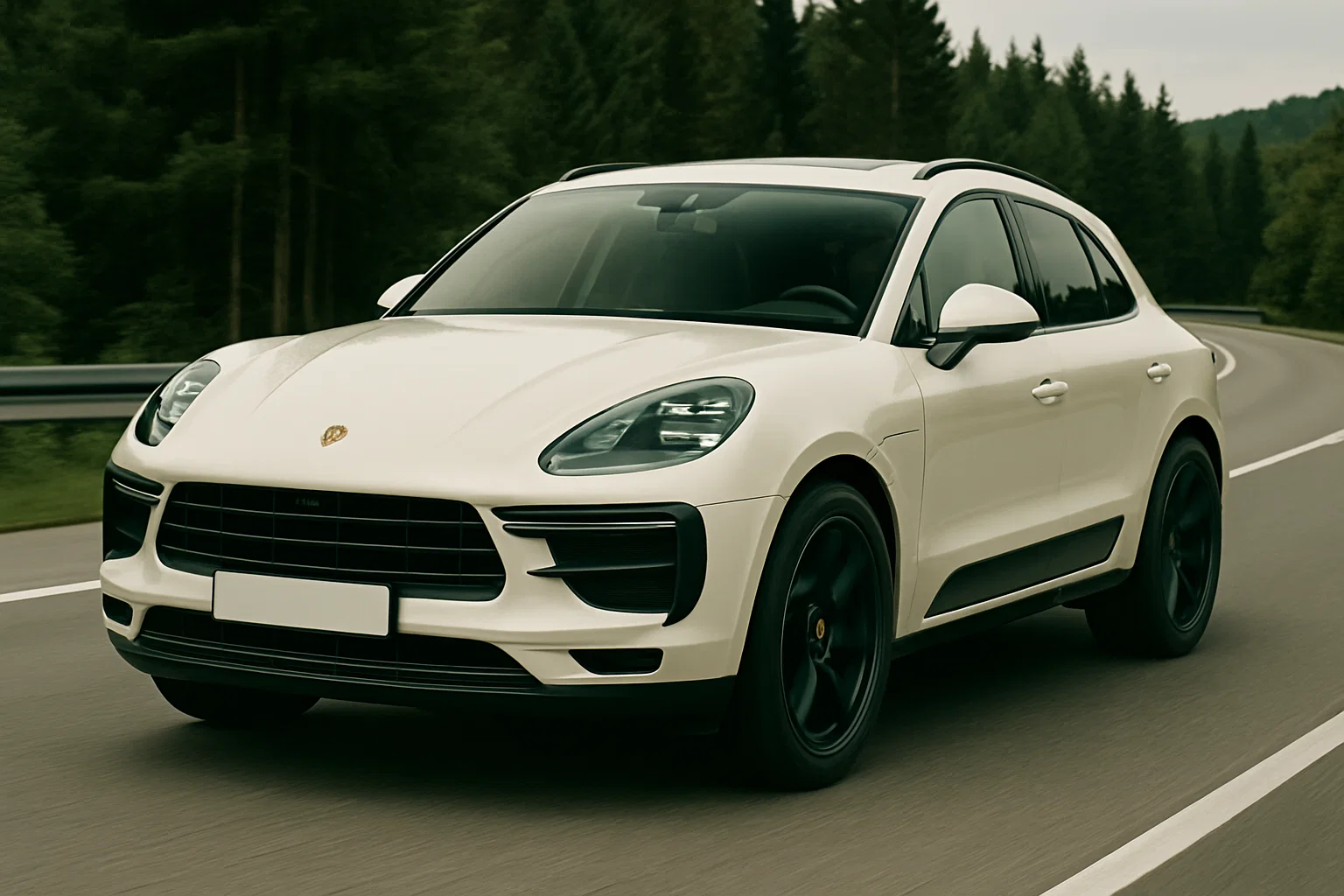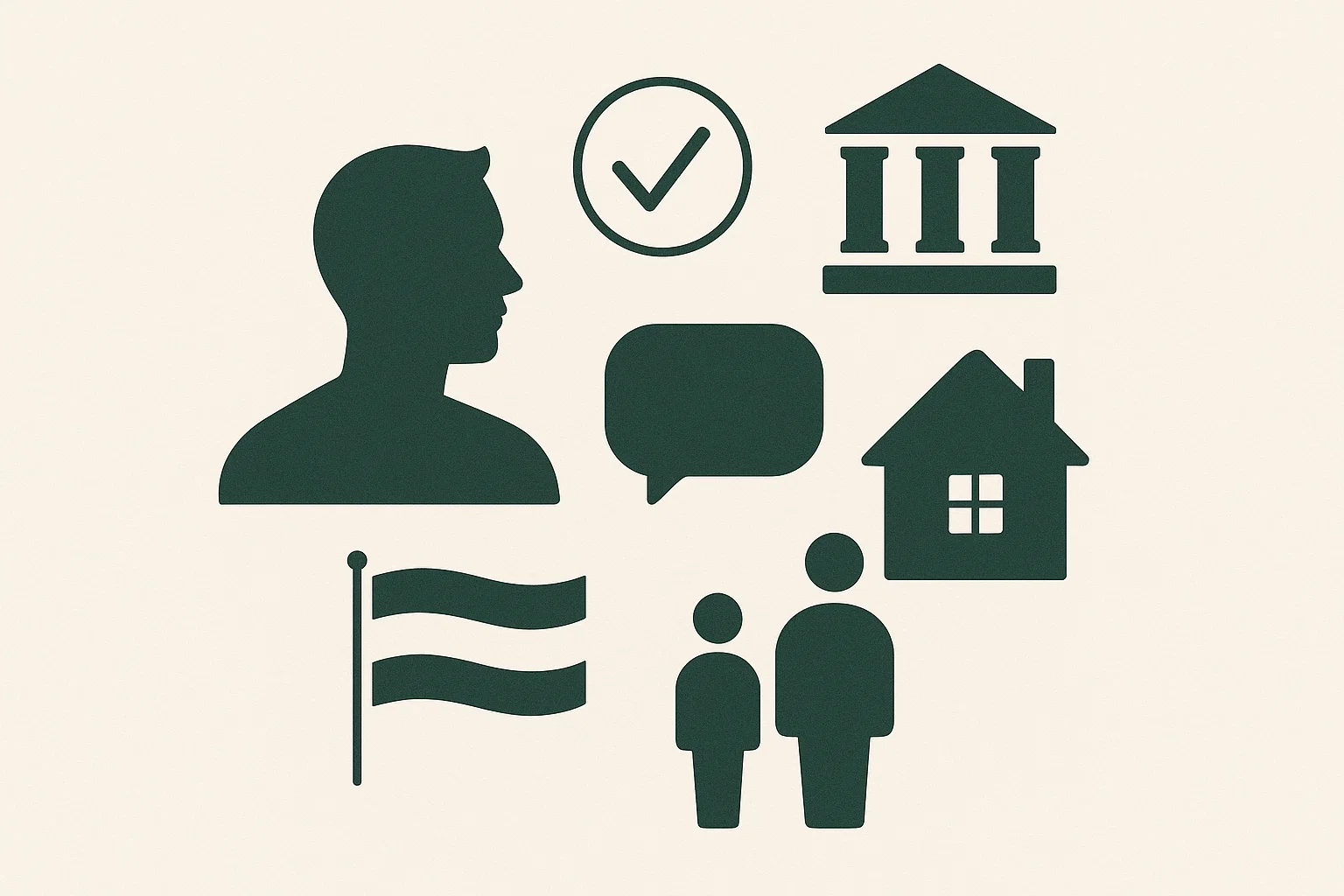Hitting €100k didn’t bring champagne. It brought calm, perspective, and the quiet freedom to choose without fear of money holding me back.
I woke up in a five-star hotel in Sofia, Bulgaria. The kind of hotel with tall and heavy curtains that let through just enough sunlight to remind you it’s way too early. There was an espresso machine in the corner, a bathrobe hanging off a chair, and a minibar I definitely wasn’t going to touch because of the ridiculously expensive peanuts.
It might sound like success. At least, the version of success my younger self would have imagined. But I wasn’t on holiday. I was there for work, with another day of back-to-back meetings ahead of me.
Still half-asleep, I did what I always do in the morning: reaching for my phone and opening my banking app to check my portfolio. And there it was. Overnight, my total net worth had crossed €100,000.
Not in cash stuffed under a mattress, but slowly built through years of consistent saving, investing, and letting compound growth do its thing. A milestone I’d slowly worked toward for years. And now it was real.
The Moment Itself: Not What I expected
I’d love to tell you I jumped on the bed, ordered champagne, or at least splurged on those overpriced peanuts. But the truth? I felt almost nothing.
It wasn’t because I suddenly didn’t care. I had cared for years. But when the number appeared there was no fanfare, just a quiet recognition. A small exhale and lightness like I’d finally put down a heavy backpack I didn’t know I was carrying.
It wasn’t disappointment. It wasn’t euphoria either. It was more a composed satisfaction like: “Okay. So this is what that feels like.” And just as quickly, it all went away. My focus shifted back to the day ahead: I went to the hotel gym to wake myself up with an early workout, took a shower, had my breakfast and stepped in the taxi to the office.
From an Unexpected Feeling to Personal Finance Lessons
That quiet morning in Sofia taught me three big lessons.
1. Money doesn’t buy the feeling you expect.
Numbers don’t hug you. They don’t validate you. €100K didn’t suddenly make me feel “better.” It just reminded me that I already had most of what I wanted: health, friends, and the ability to enjoy life along the way.
2. Money buys space.
What I did feel was relief and calm. The knowledge that if something went wrong, I could most likely handle it. That if I wanted to say no to a job, take a break, or support someone close to me, I had that option. That kind of freedom doesn’t scream. It whispers.
3. Comparison is useless.
In some circles, €100K is pocket change. In others, it’s life-changing. In The Netherlands, especially at my age, it puts you ahead of many but also still behind others. Comparison is a terrible financial strategy. The only healthy use for it is perspective.
And perspective was what this moment gave me: gratitude for the privilege I’ve had, and a reminder to stay grounded in who I am, not just in what I own.
The Real Milestone
Looking back, the milestone wasn’t the number itself. It was the habits that built it:
- Learning to save for the sake of saving, thanks to my parents’ mindset.
- Building an attitude and work ethic that allowed me to earn enough to invest for the long term.
- Investing consistently and early enough to let time and compound growth quietly carry some of the weight.
I once had dinner with a billionaire and what struck me most wasn’t his wealth, but his calm. He didn’t talk about numbers at all. He just carried himself lightly. Crossing €100K was my own small glimpse of that same feeling.
Final thought
€100K didn’t make me happier. But it did make me quieter inside. It wasn’t a party moment, it was a peaceful moment.
And maybe that’s the real secret: the numbers themselves don’t change you. The peace you build along the way does.
What financial milestone are you working toward right now, and how do you celebrate progress along the way?
Many readers share these lessons in their own circles. If this story gave you something, feel free to pass it on!



